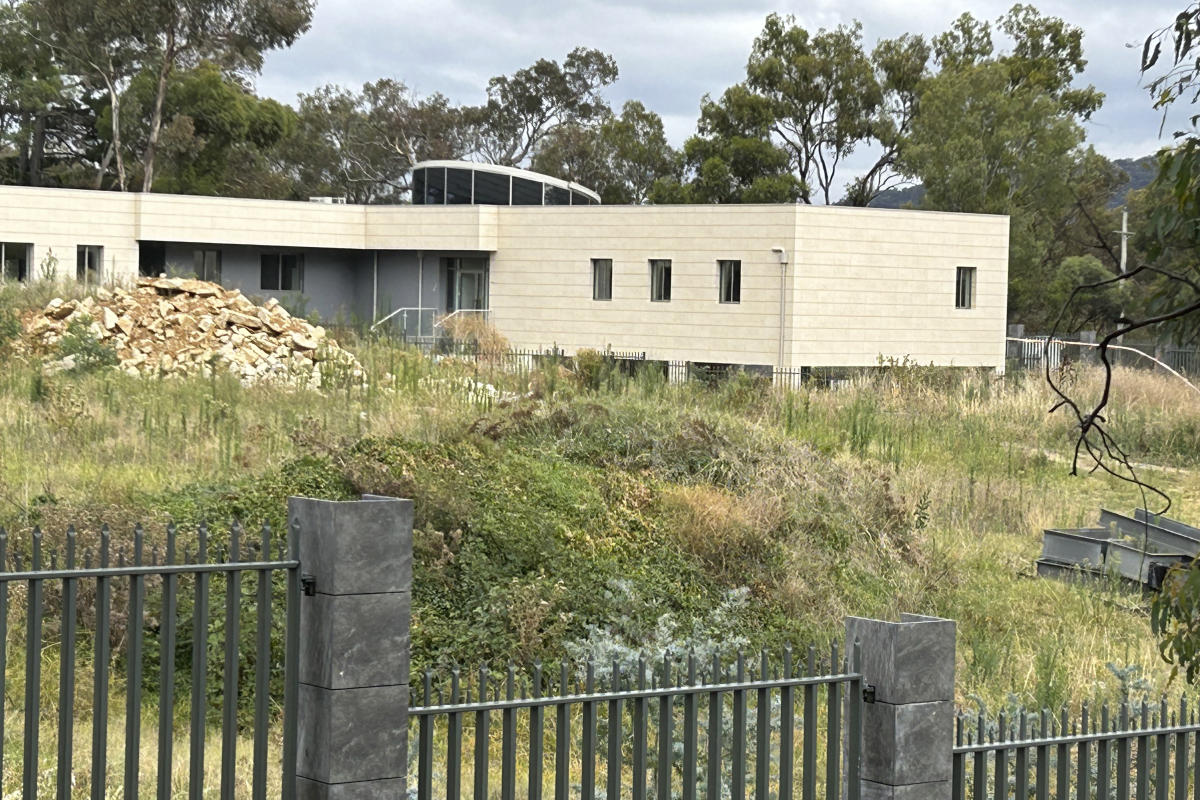CANBERRA, Australia (AP) — Australia’s highest court on Monday rejected Russia’s request for an injunction that would have prevented Moscow’s embassy from being expelled from a location in the national capital, Canberra.
In denying the request, Supreme Court Justice Jane Jagot called Russia’s challenge on constitutional grounds to the lease termination law “weak” and “difficult to comprehend.”
Parliament approved emergency legislation On June 15 he terminated the Russian lease on the largely empty compound for security reasons because the new embassy was too close to the Parliament building.
Russian lawyer Elliot Hyde argued that Ambassador Alexei Pavlovsky would not have confidence in the safety and security of the consular building already on the site if the embassy was not allowed to retain possession until a challenge to the validity of the lease termination had been adjudicated.
Elliott said the man who had been living on the site in a mobile cabin since at least the last week was a security guard guarding the compound. The man was described in the media as a Russian diplomat.
Prime Minister Anthony Albanese said he welcomed the Supreme Court’s decision and expected the Russians to leave the site.
“The court has made it clear that there is no legal basis for a continued Russian presence at the site at this time and we expect the Russian Federation to act in accordance with the court’s decision,” Albanese told reporters.
The Russian embassy did not immediately respond to a request for comment. previously, Russia Australia was accused of “anti-Russian hysteria” for canceling the lease on the site in Canberra’s diplomatic quarter where Moscow wanted to build a new embassy. The current Russian embassy is located in the Canberra suburb of Griffiths and its operations have not been affected.
The security guard left the site after the decision. The media reported that he was carrying bags and was transported in a car with diplomatic license plates.
Examination of the published list of Russian diplomats accredited to Australia showed that there were only three male diplomats who could be the man guarding the embassy site, said Don Rothwell, an international law expert at the Australian National University.
Given Elliot’s description of the occupant as a guard, Rothwell suspected the man had diplomatic immunity, which could have prevented the Australian authorities from removing him from the site.
“If the Commonwealth (Government of) issues an order to that person – we will call him the security guard – to leave, once he has left the Commonwealth, then it can be endeavored to completely secure the site and ensure that no one else can enter,” said Rothwell.
Australian Federal Police last week refused to explain why the man had not been removed from the disputed site as an intruder.

“Unapologetic tv specialist. Hardcore zombie trailblazer. Infuriatingly humble problem solver.”







More Stories
Stand News editors convicted in sedition case
Latest Baysail sinking: Mike Lynch’s wife ‘didn’t want to leave boat without family’ as crew investigated
WFP halts Gaza operations after repeated shooting at aid vehicle